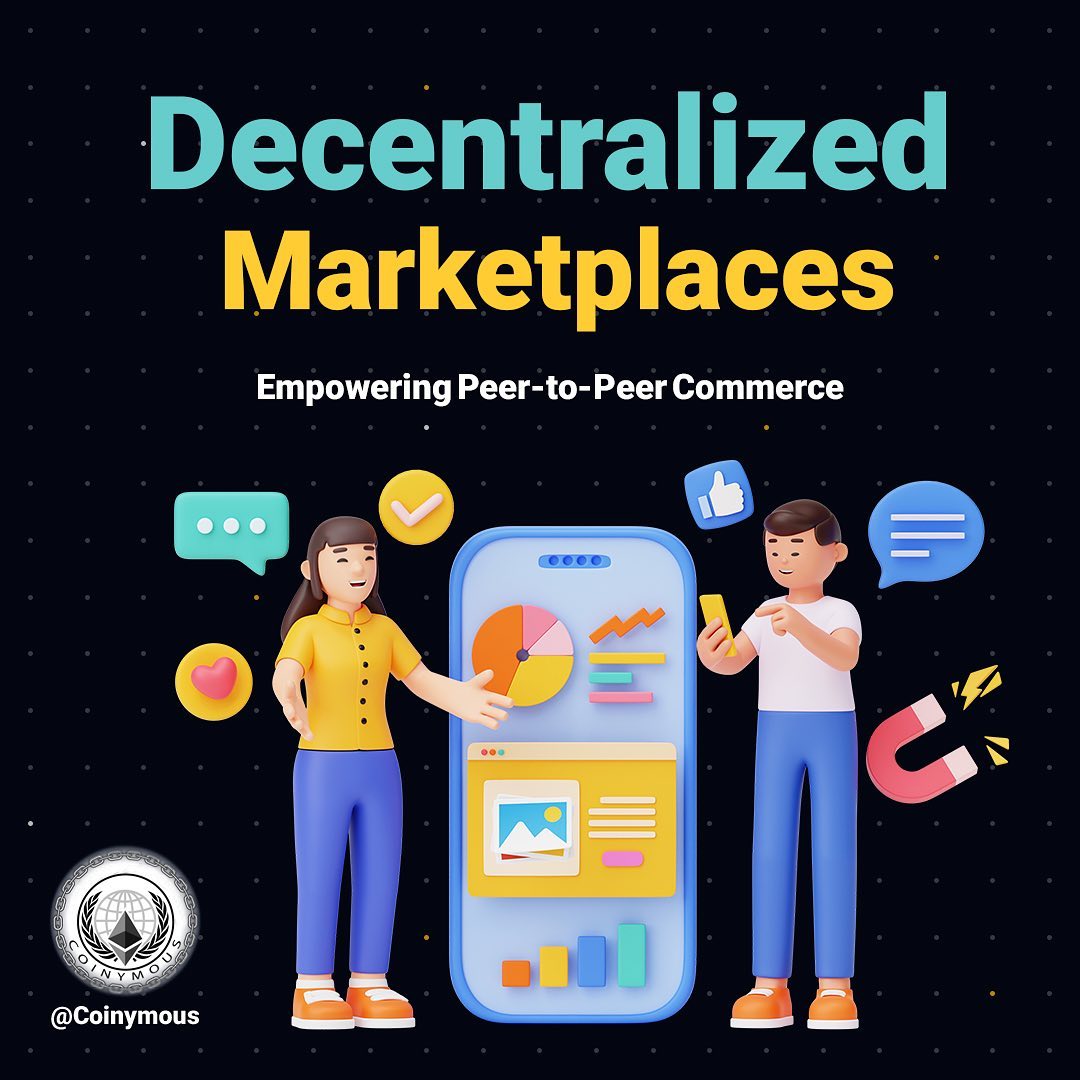Decentralized Marketplaces: Empowering Peer-to-Peer Commerce 🛍️
Decentralized marketplaces empower individuals to directly engage in peer-to-peer commerce without the need for intermediaries or central authorities, creating a more inclusive and transparent economy. These platforms leverage blockchain technology to ensure secure transactions and enable participants to have greater control over their own data and financial transactions.

Introduction:
In recent years, the rise of decentralized technology has paved the way for numerous groundbreaking innovations. One such innovation that has gained significant traction is the decentralized marketplace—a platform that enables peer-to-peer commerce without traditional intermediaries. This blog post explores the potential of decentralized marketplaces and how they are revolutionizing the landscape of online commerce.
Unleashing the Power of Peer-to-Peer Commerce:
Decentralized marketplaces provide a unique opportunity for individuals and small businesses to engage in direct transactions, eliminating the need for intermediaries like online retail giants. Empowering peer-to-peer commerce means lower costs, increased accessibility, and enhanced profit potential. Sellers can connect directly with buyers, leading to reduced fees and improved transparency.
Cutting Out Intermediaries:
Traditional online marketplaces charge high fees, making it difficult for smaller vendors to compete. However, decentralized marketplaces utilize blockchain technology, enabling secure and transparent transactions without intermediaries. This eliminates excessive fees, allowing sellers to offer more competitive prices and maximize their profits. Additionally, this direct connection between buyers and sellers fosters trust and builds stronger relationships.
Enhanced Security:
With centralized marketplaces, users are forced to trust a single entity with their personal and financial information. This poses a significant risk, as data breaches and fraud are all too common. Decentralized marketplaces, on the other hand, utilize blockchain's distributed ledger technology which provides enhanced security and privacy. Transactions are recorded on the blockchain, making them immutable and virtually tamper-proof, ultimately protecting both buyers and sellers.
Global Access and Inclusivity:
Decentralized marketplaces have the potential to bridge the gap between buyers and sellers worldwide. They remove geographical barriers, allowing individuals from different countries and backgrounds to participate in commerce without restrictions. Small businesses can reach a global customer base, opening up new opportunities and stimulating economic growth in regions that may have otherwise struggled to access international markets.
Encouraging Innovation:
The nature of decentralized marketplaces fosters innovation and diversity in commerce. With fewer restrictions and intermediaries, entrepreneurs and creators have the freedom to experiment, launch new products, and offer unique services. This encourages a more vibrant and diverse market, benefiting both buyers and sellers seeking out fresh and innovative offerings.
Conclusion:
Decentralized marketplaces are revolutionizing the way we engage in peer-to-peer commerce. By eliminating intermediaries, lowering fees, enhancing security, and fostering global access, these marketplaces empower individuals and small businesses to thrive in the online marketplace. As technology continues to advance, the potential for decentralized marketplaces to reshape the future of commerce is immense. Embrace this paradigm shift and join the movement towards a more inclusive, transparent, and empowering peer-to-peer economy.